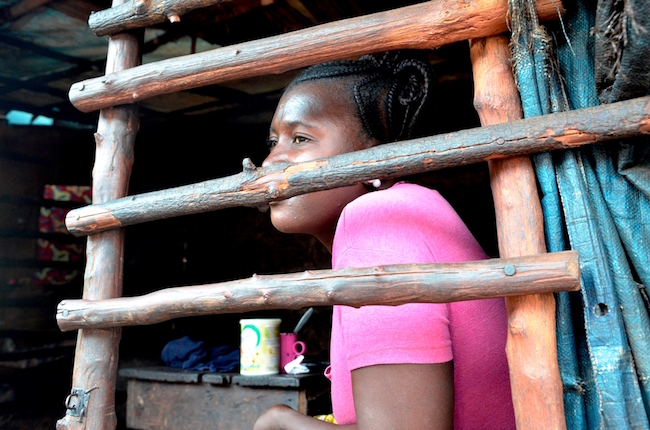


A woman in Freetown, Sierra Leone, watches MSF staff educate residents about Ebola. Photo by Alessandro Siclari/MSF
“Epidemics are just like a conflict situation. You have a loss of governance; you have chaos and instability; and all of that leaves women vulnerable to gender-based violence.”The story in Foreign Policy says that we are just beginning to learn what we should have been able to predict – that women and girls in the West African countries hit by the Ebola crisis were made more vulnerable to sexual violence by a lack of order and stability. Just as women are preyed upon by opportunists during a conflict, when people are looking the other way, communities are in disarray, and many women are left alone, a massive epidemic like this one can clear the way for the same behavior.
During the height of the Ebola crisis, Sierra Leone teen pregnancy increased by 65%, according to UNDP. And a report by Plan International, Save the Children, World Vision, and UNICEF also found an increase in teen pregnancy among the people they surveyed across the three affected countries.
As the FP story points out, the connection between epidemics and rape is not well documented. But looking back now at the conditions of these communities and populations during the peak of the crisis, it seems obvious. A lack of order, families torn apart, economic breakdown, these are many of the same issues that make women and girls targets.
The fact that this information is just emerging now is sadly not surprising. Too often, sexual violence is either not considered at all, or not considered as an issue that needs to be addressed at the beginning of an international response. And we have to learn again and again, after so many women’s and girls’ lives have been devastatingly impacted that this is a major mistake.
#tomorrowneedsher #womenshealth Because Tomorrow Needs Her focuses on some of the impediments to women’s health, exposing injustices that disproportionately affect women and girls around the world.


